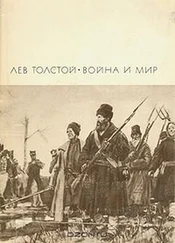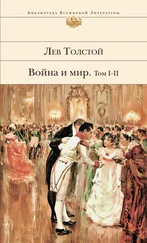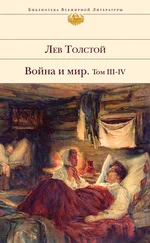| The cannonade was dying down, but the rattle of musketry behind and on the right sounded oftener and nearer. |
Канонада стала слабее, но трескотня ружей сзади и справа слышалась еще чаще и ближе. |
| As soon as Tushin with his guns, continually driving round or coming upon wounded men, was out of range of fire and had descended into the dip, he was met by some of the staff, among them the staff officer and Zherkov, who had been twice sent to Tushin's battery but had never reached it. |
Как только Тушин с своими орудиями, объезжая и наезжая на раненых, вышел из-под огня и спустился в овраг, его встретило начальство и адъютанты, в числе которых были и штаб-офицер и Жерков, два раза посланный и ни разу не доехавший до батареи Тушина. |
| Interrupting one another, they all gave, and transmitted, orders as to how to proceed, reprimanding and reproaching him. |
Все они, перебивая один другого, отдавали и передавали приказания, как и куда итти, и делали ему упреки и замечания. |
| Tushin gave no orders, and, silently-fearing to speak because at every word he felt ready to weep without knowing why-rode behind on his artillery nag. |
Тушин ничем не распоряжался и молча, боясь говорить, потому что при каждом слове он готов был, сам не зная отчего, заплакать, ехал сзади на своей артиллерийской кляче. |
| Though the orders were to abandon the wounded, many of them dragged themselves after troops and begged for seats on the gun carriages. |
Хотя раненых велено было бросать, много из них тащилось за войсками и просилось на орудия. |
| The jaunty infantry officer who just before the battle had rushed out of Tushin's wattle shed was laid, with a bullet in his stomach, on "Matvevna's" carriage. |
Тот самый молодцоватый пехотный офицер, который перед сражением выскочил из шалаша Тушина, был, с пулей в животе, положен на лафет Матвевны. |
| At the foot of the hill, a pale hussar cadet, supporting one hand with the other, came up to Tushin and asked for a seat. |
Под горой бледный гусарский юнкер, одною рукой поддерживая другую, подошел к Тушину и попросился сесть. |
| "Captain, for God's sake! I've hurt my arm," he said timidly. "For God's sake... I can't walk. |
- Капитан, ради Бога, я контужен в руку, - сказал он робко. - Ради Бога, я не могу итти. |
| For God's sake!" |
Ради Бога! |
| It was plain that this cadet had already repeatedly asked for a lift and been refused. |
Видно было, что юнкер этот уже не раз просился где-нибудь сесть и везде получал отказы. |
| He asked in a hesitating, piteous voice. |
Он просил нерешительным и жалким голосом. |
| "Tell them to give me a seat, for God's sake!" |
- Прикажите посадить, ради Бога. |
| "Give him a seat," said Tushin. "Lay a cloak for him to sit on, lad," he said, addressing his favorite soldier. "And where is the wounded officer?" |
- Посадите, посадите, - сказал Тушин. - Подложи шинель, ты, дядя, - обратился он к своему любимому солдату. - А где офицер раненый? |
| "He has been set down. He died," replied someone. "Help him up. |
- Сложили, кончился, - ответил кто-то.- Посадите. |
| Sit down, dear fellow, sit down! |
Садитесь, милый, садитесь. |
| Spread out the cloak, Antonov." |
Подстели шинель, Антонов. |
| The cadet was Rostov. |
Юнкер был Ростов. |
| With one hand he supported the other; he was pale and his jaw trembled, shivering feverishly. |
Он держал одною рукой другую, был бледен, и нижняя челюсть тряслась от лихорадочной дрожи. |
| He was placed on "Matvevna," the gun from which they had removed the dead officer. |
Его посадили на Матвевну, на то самое орудие, с которого сложили мертвого офицера. |
| The cloak they spread under him was wet with blood which stained his breeches and arm. |
На подложенной шинели была кровь, в которой запачкались рейтузы и руки Ростова. |
| "What, are you wounded, my lad?" said Tushin, approaching the gun on which Rostov sat. |
- Что, вы ранены, голубчик? - сказал Тушин, подходя к орудию, на котором сидел Ростов. |
| "No, it's a sprain." |
- Нет, контужен. |
| "Then what is this blood on the gun carriage?" inquired Tushin. |
- Отчего же кровь-то на станине? - спросил Тушин. |
| "It was the officer, your honor, stained it," answered the artilleryman, wiping away the blood with his coat sleeve, as if apologizing for the state of his gun. |
- Это офицер, ваше благородие, окровянил, -отвечал солдат-артиллерист, обтирая кровь рукавом шинели и как будто извиняясь за нечистоту, в которой находилось орудие. |
| It was all that they could do to get the guns up the rise aided by the infantry, and having reached the village of Gruntersdorf they halted. |
Насилу, с помощью пехоты, вывезли орудия в гору, и достигши деревни Гунтерсдорф, остановились. |
| It had grown so dark that one could not distinguish the uniforms ten paces off, and the firing had begun to subside. |
Стало уже так темно, что в десяти шагах нельзя было различить мундиров солдат, и перестрелка стала стихать. |
| Suddenly, near by on the right, shouting and firing were again heard. |
Вдруг близко с правой стороны послышались опять крики и пальба. |
| Flashes of shot gleamed in the darkness. |
От выстрелов уже блестело в темноте. |
| This was the last French attack and was met by soldiers who had sheltered in the village houses. |
Это была последняя атака французов, на которую отвечали солдаты, засевшие в дома деревни. |
| They all rushed out of the village again, but Tushin's guns could not move, and the artillerymen, Tushin, and the cadet exchanged silent glances as they awaited their fate. |
Опять всё бросилось из деревни, но орудия Тушина не могли двинуться, и артиллеристы, Тушин и юнкер, молча переглядывались, ожидая своей участи. |
| The firing died down and soldiers, talking eagerly, streamed out of a side street. |
Перестрелка стала стихать, и из боковой улицы высыпали оживленные говором солдаты. |
| "Not hurt, Petrov?" asked one. |
- Цел, Петров? - спрашивал один. |
| "We've given it 'em hot, mate! |
- Задали, брат, жару. |
| They won't make another push now," said another. |
Теперь не сунутся, - говорил другой. |
| "You couldn't see a thing. |
- Ничего не видать. |
| How they shot at their own fellows! |
Как они в своих-то зажарили! |
| Nothing could be seen. Pitch-dark, brother! |
Не видать; темь, братцы. |
| Isn't there something to drink?" |
Нет ли напиться? |
| The French had been repulsed for the last time. |
Французы последний раз были отбиты. |
| And again and again in the complete darkness Tushin's guns moved forward, surrounded by the humming infantry as by a frame. |
И опять, в совершенном мраке, орудия Тушина, как рамой окруженные гудевшею пехотой, двинулись куда-то вперед. |
| In the darkness, it seemed as though a gloomy unseen river was flowing always in one direction, humming with whispers and talk and the sound of hoofs and wheels. |
В темноте как будто текла невидимая, мрачная река, всё в одном направлении, гудя шопотом, говором и звуками копыт и колес. |



